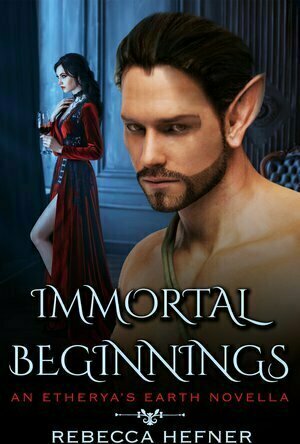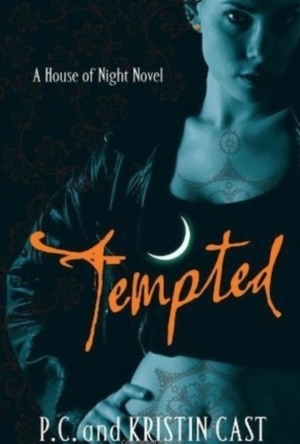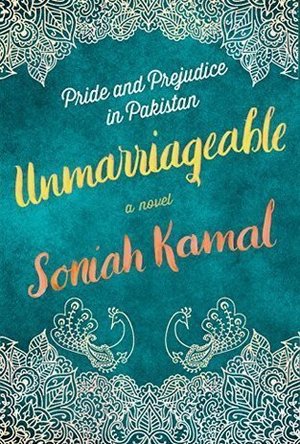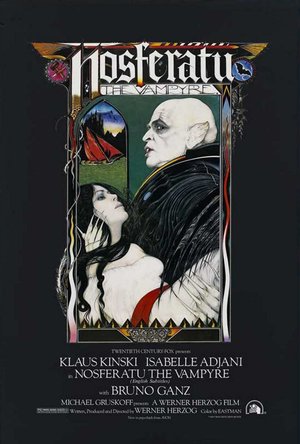
The Elusive Sun (Etherya's Earth #2)
Book
Lila, a high-born aristocrat of the Vampyre kingdom, was betrothed to Sathan, King of the Vampyres,...
Paranormal Fantasy Romance
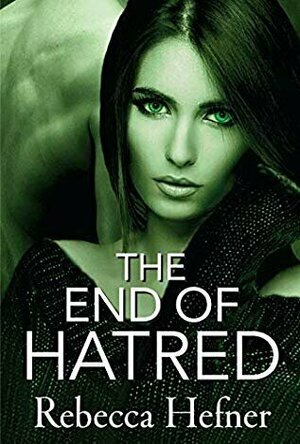
The End of Hatred (Etherya's Earth #1)
Book
These are dangerous times on Etherya's Earth... Slayer Princess Miranda, heir to the throne, has...
Paranormal Romance Vampires Demons
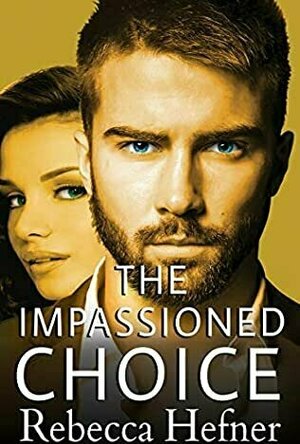
The Impassioned Choice (Etherya's Earth #5)
Book
A new villain emerges, threatening the peace the immortals crave… Heden, the youngest Vampyre...
Fantasy Romance Vampires

The Cryptic Prophecy (Etherya's Earth #6)
Book
The next generation of Etherya’s Earth begins… Calinda, daughter of Darkrip and Arderin, has...
Fantasy Romance
Merissa (13770 KP) rated Immortal Beginnings (Etherya's Earth #4.5) in Books
Sep 5, 2022
This is so sweet! Seriously! Dragos is... oh, I just want to give him a hug! And then maybe climb him like a tree. If there's something I love it's a man who is manly and also tender and loving. Dragos is all of the above. Raina has her concerns, which are all completely understandable, but Dragos is there to help her work through them.
I don't like novellas. I'm greedy and always want more. This is no exception. So why the five stars? Because it's too good not to. I may want more - more backstory, more current events, more hope for the future (although the epilogue is pretty damn good) - more everything but that is no reason to not give five stars where they are due. Everything that is here is well-written, well-paced, loving, kind, tender, HOT!
This was a fantastic addition to the series and I have no hesitation in recommending it - even if it is 'only' a novella! 😉
** same worded review will appear elsewhere **
* A copy of this book was provided to me with no requirements for a review. I voluntarily read this book, and the comments here are my honest opinion. *
Merissa
Archaeolibrarian - I Dig Good Books!
Rachel King (13 KP) rated Tempted (House of Night, #6) in Books
Feb 11, 2019
The things I did like about the book are what I've like about the entire series. I love how the characters all strive for normalcy, even when everything around them is completely paranormal. I love the dialogue and how it is very typically teenager-ish. I also love how Zoey makes tons of mistakes, even though she has the favor of the Goddess. The one "loose end" that did seem to get taken care of in a way was the Imprint between Aphrodite and Stevie Rae being broken, though it just formed another loose end with Stevie Rae hiding the Raven Mocker Rephaim from everyone else.
I will likely stay loyal to the series in the hopes that the plot improves with the next book, Burned.
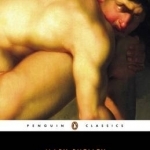
Frankenstein: Or, the Modern Prometheus
Mary Shelley and Maurice Hindle
Book
A terrifying vision of scientific progress without moral limits, Mary Shelley's Frankenstein leads...
Goddess in the Stacks (553 KP) rated Unmarriageable: A Novel in Books
May 7, 2019
Anyway. Austen. I've read a bunch of retellings but believe it or not, I haven't read the original. I really need to get on that, but instead, I read Unmarriageable, which is Pride and Prejudice set in modern-day Pakistan! It's SO GOOD. The themes of family honor, class structure, and rumors damaging reputations translates incredibly easily into Pakistani society, which is why Soniah Kamal wrote it. In her Afterword, she writes:
"Was there any worry more Pakistani than the concern about what might bring a family honor or dishonor? .... Was there anything more Pakistani than [Charlotte's] calculated, 'arranged' marriage? ... Was there anything more apropos to Pakistan than class issues, snootiness, and double standards?"
She goes on to say she was already reading the book as if it was set in Pakistan, so why not write it that way for other Pakistanis? Kamal explains that Pakistan is very much a mix of Pakistan and English culture, and that the emphasis on learning English and English culture comes at the expense of their own indigenous culture, something forced upon them by colonizers. Unmarriageable is her way of melding the two cultures.
I really enjoyed this version of the classic, and it has me even more interested in other versions, such as Ibi Zoboi's Pride and Sonali Dev's Pride, Prejudice, and Other Flavors. Book Riot actually ran a short list recently on diverse Austen retellings, and I've added every one of them to my To-Read list!
You can find all my reviews (and links to the things mentioned above) on my blog, http://goddessinthestacks.com
Matthew Krueger (10051 KP) rated Nosferatu the Vampyre (1979) in Movies
Oct 28, 2020 (Updated Oct 28, 2020)
The plot: Jonathan Harker is sent away to Count Dracula's castle to sell him a house in Virna, where he lives. But Count Dracula is a vampire, an undead ghoul living off men's blood. Inspired by a photograph of Lucy Harker, Jonathan's wife, Dracula moves to Virna, bringing with him death and plague... An unusually contemplative version of Dracula, in which the vampire bears the cross of not being able to get old and die.
There are two different versions of the film, one in which the actors speak English, and one in which they speak German.
Herzog's production of Nosferatu was very well received by critics and enjoyed a comfortable degree of commercial success.
The film also marks the second of five collaborations between director Herzog and actor Kinski.
While the basic story is derived from Bram Stoker's novel Dracula, director Herzog made the 1979 film primarily as an homage remake of F. W. Murnau's silent film Nosferatu (1922), which differs somewhat from Stoker's original work. The makers of the earlier film could not obtain the rights for a film adaptation of Dracula, so they changed a number of minor details and character names in an unsuccessful attempt to avoid copyright infringement on the intellectual property owned (at the time) by Stoker's widow Florence. A lawsuit was filed, resulting in an order for the destruction of all prints of the film. Some prints survived, and were restored after Florence Stoker had died and the copyright had expired.
By the 1960s and early 1970s the original silent returned to circulation, and was enjoyed by a new generation of moviegoers.
In 1979, by the very day the copyright for Dracula had entered the public domain, Herzog proceeded with his updated version of the classic German film, which could now include the original character names.
Herzog saw his film as a parable about the fragility of order in a staid, bourgeois town. "It is more than a horror film", he says. "Nosferatu is not a monster, but an ambivalent, masterful force of change. When the plague threatens, people throw their property into the streets, they discard their bourgeois trappings. A re‐evaluation
of life and its meaning takes place."
Like i said its a decent movie.
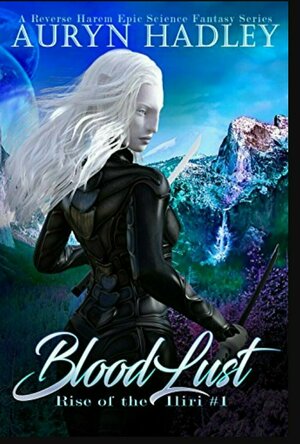
Bloodlust (The Rise Of Iliri #1)
Book
"Bloodlust, and the Rise of the Iliri series as a whole, will blow you mind, break your heart, and...
Young adult Vampire Vampyre Ilirri Young adult Teen
